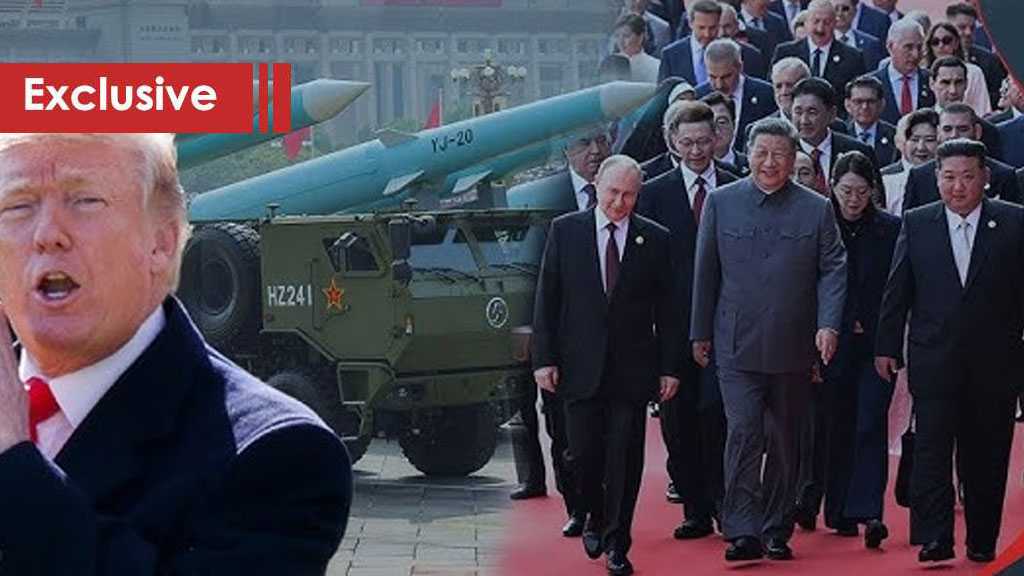
From the Mountains of Maran to the Red Sea: Yemen’s Defiant Example

By Israa Al-Fass
An entire government — president and ministers alike — martyred on the Path [Liberating] Al-Quds [“Jerusalem”]. Where else could such a sacrifice occur but in Yemen? From the moment it stepped forward to support the resistance in Gaza, Yemen knew its choice would come with a price and grave consequences. Yet despite that, it deliberately embraced a path of escalation that has only deepened ever since.
Responding to calls from Palestinian resistance factions — as “Israeli” aggression descended into genocidal brutality — Yemen recognized a historic opportunity to enter the confrontation it had long awaited. Once more, it echoed the words of the martyred Sayyed Hussein Al-Houthi: “We want to fight America and ‘Israel’… we want to take a stand against them”.
Since the day of the “cry” in Maran in 2002 — when crowds chanted the words of Sayyed Hussein al-Houthi — Yemenis have defined their destiny. They placed themselves on God’s side, vowing to defend their faith by confronting America, “Israel” and the global order of corruption. That was their clear declaration of an open-ended struggle. Today, amid genocide and the liquidation of the Palestinian Cause, Yemen has assumed a confrontation that much of the Arab world has abandoned — standing as the sole Arab state actor to militarily support the resistance.
From virtually nothing in material means emerged “Abu Yemen” — once a slur hurled in disdain, now a proud badge of honor across the region, recalling the valor of Arab forefathers and the last bastion of dignity. In 2002, from marginalized Saada, arose “Ansarullah” — a name that later crystallized, rooted in the legacy of the Prophet’s helpers in Medina who sheltered him and the Meccan emigrants. It is no wonder that Yemenis live within their own history and revive it, proudly recalling the Prophet Muhammad’s words about them: “The people of Yemen have come to you: the most tender-hearted and softest of hearts. Faith is Yemeni, and wisdom is Yemeni”.
Six wars were waged against Ansarullah. In the first, its founding leader was martyred, yet each confrontation only made it stronger — until it secured dominance first in Saada, then as the decisive power in Sanaa. Its record includes two victories over Saudi Arabia. Crown Prince Mohammed bin Salman once told Time magazine in 2018 that the Kingdom had the largest army in the region and the second most technologically advanced. Still, Ansar Allah fighters defeated Saudi forces in 2009 when Riyadh intervened alongside Ali Abdullah Saleh’s troops in the sixth Saada war. And once again, Yemen prevailed after Saudi Arabia launched its 2015 campaign, this time with extensive regional and international backing.
After October 7, Yemen’s military engagement propelled it into the center of regional power balances — commanding the Bab al-Mandeb Strait, asserting dominance over the Red Sea, and extending its reach into warm waters. In a world where control of sea lanes equals global power, Yemen shattered the paralyzed Arab image: dictating terms instead of receiving them, striking at “Israel’s” interests, and confronting the Americans head-on — determined to conclude the confrontation on its own terms. Donald Trump once threatened Yemen with total annihilation, only to later send envoys to Muscat, pleading for an end to Yemeni strikes on US vessels in exchange for halting American strikes. Even CNN admitted: “We are draining all our resources — munitions, fuel, deployment time. And instead of capitulating, the Houthis threatened to expand their targets. History shows that the Houthis have an exceptionally high tolerance for pain, and subduing them is extremely difficult.”
With one hand, Yemen struck deep into occupied territory and sank enemy ships; with the other, it dismantled the hollow dogmas of Arab submission long justified under the banner of “political realism.” For years, the Arab mindset was paralyzed — rationalizing recognition of the occupation as an unavoidable reality, and portraying confrontation with “Israel” as suicidal given its military superiority and American backing. Yet no liberation struggle in history began with parity; deterrence is achieved through resistance, not surrender. To refuse confrontation is to capitulate entirely, while engaging in it brings exhaustion — but whatever the cost, it is worth paying. The Lebanese resistance proved as much in 2000, shattering the myth of “Israel’s” invincibility. Yemen has since carried that torch forward, embodying a state-led model of direct confrontation.
For decades, Arab media diverted the public from the real enemy — “Israel” — inflating manufactured threats, often crafted with Western intelligence input. These threats were exaggerated, demonized, fought, then recycled and reintroduced. Meanwhile, so-called “elites” invented theories to justify collaboration, dressing up exploitation and subservience — especially to America — as strategic foresight and international influence. In parallel, clerics were mobilized to sanctify betrayal, framing normalization as tolerance and openness. The entire effort targeted the masses: dulling conscience, normalizing disgrace, and numbing people to atrocities broadcast live before their eyes.
Yemen refused that script, rebelling against imposed concepts. Even before recovering from Saudi aggression, it plunged headlong into the central battle — exposing the emptiness of slogans. This is a country whose material capabilities are dwarfed by its neighbors, even before its infrastructure was devastated by war. A country denied external recognition by decree of its powerful neighbor, and riven internally by divisions exploited for foreign agendas.
Yet through it all, Yemen’s compass stayed fixed on confronting “Israel” until its aggression was checked. Its strikes forced the shutdown of Eilat port, escalated the blockade from the Red Sea to the Mediterranean, and demonstrated decisive impact on the battlefield. While “Israeli” officials hide the true scale of losses, their desperation is revealed by Arab states scrambling to shield the entity from further blows.
As Yemen enforces a naval blockade on “Israel”, Arab regimes open land corridors and activate regional ports to serve as supply lifelines for the occupier. Arab air-defense systems intercept Yemeni missiles, while Sana’a’s threats of retaliation for assassinated leaders send neighboring states scrambling to deploy fighter jets along their borders.
Arab regimes have exhausted every excuse to justify betrayal — yet never acknowledged the truth everyone knows: that their systems, whether “His Majesty the King”, “His Highness the Prince” or “His Excellency” exist as little more than protectorates. Their borders were drawn by colonial powers, their survival guaranteed by them. Their endurance has always relied on the White House, which has treated them as the first line of defense for global imperial interests in the region.
The late Egyptian intellectual Abdel Wahab El-Messiri — among the foremost scholars of Zionism — was once asked: When will “Israel” become incapable of survival? His answer was direct: “Israel’s” life force does not come from within, but from without, resting on two pillars — unlimited American support and limitless Arab absence. In that answer, El-Messiri said it all.


